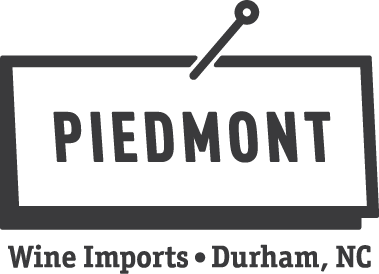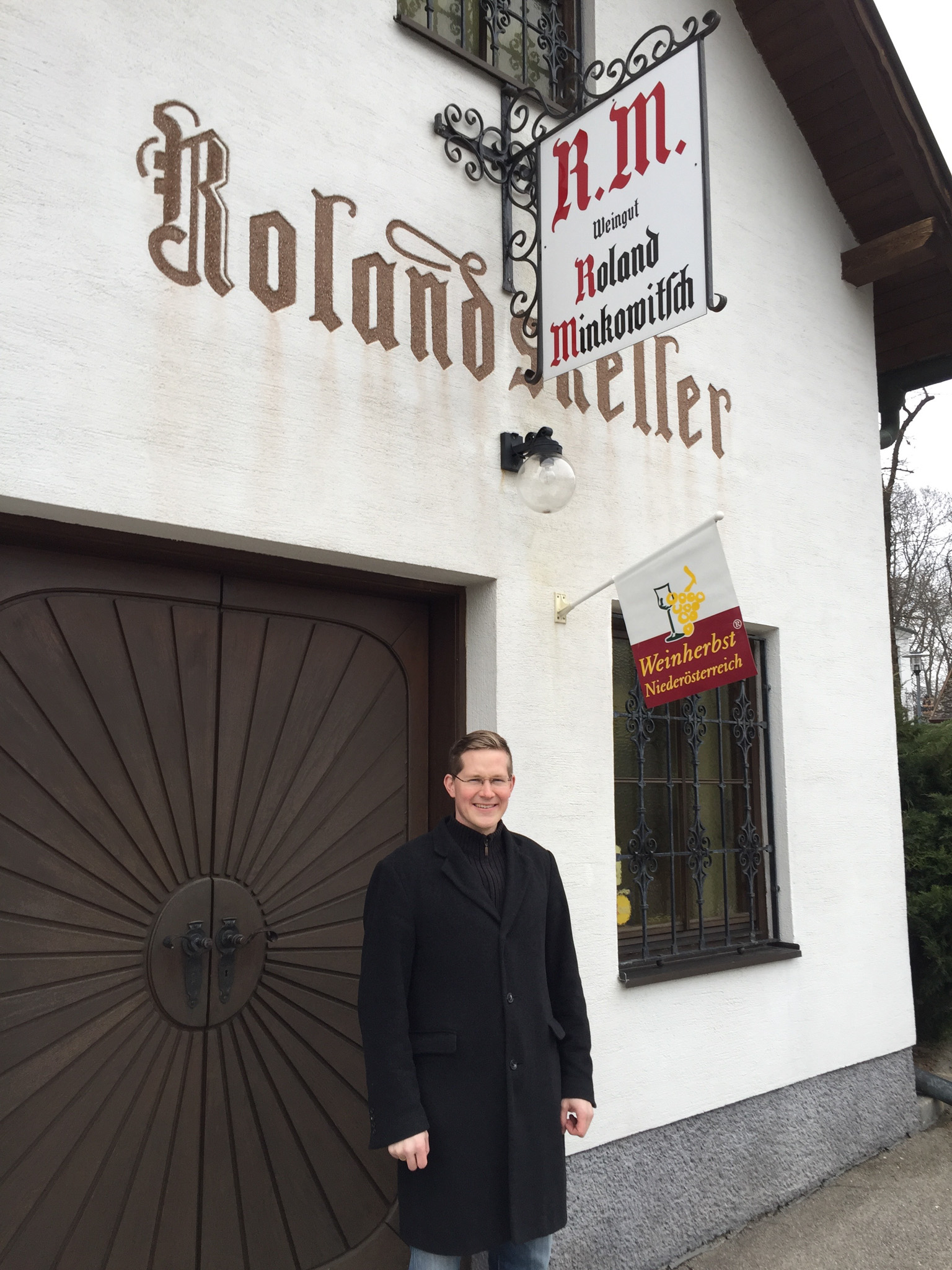
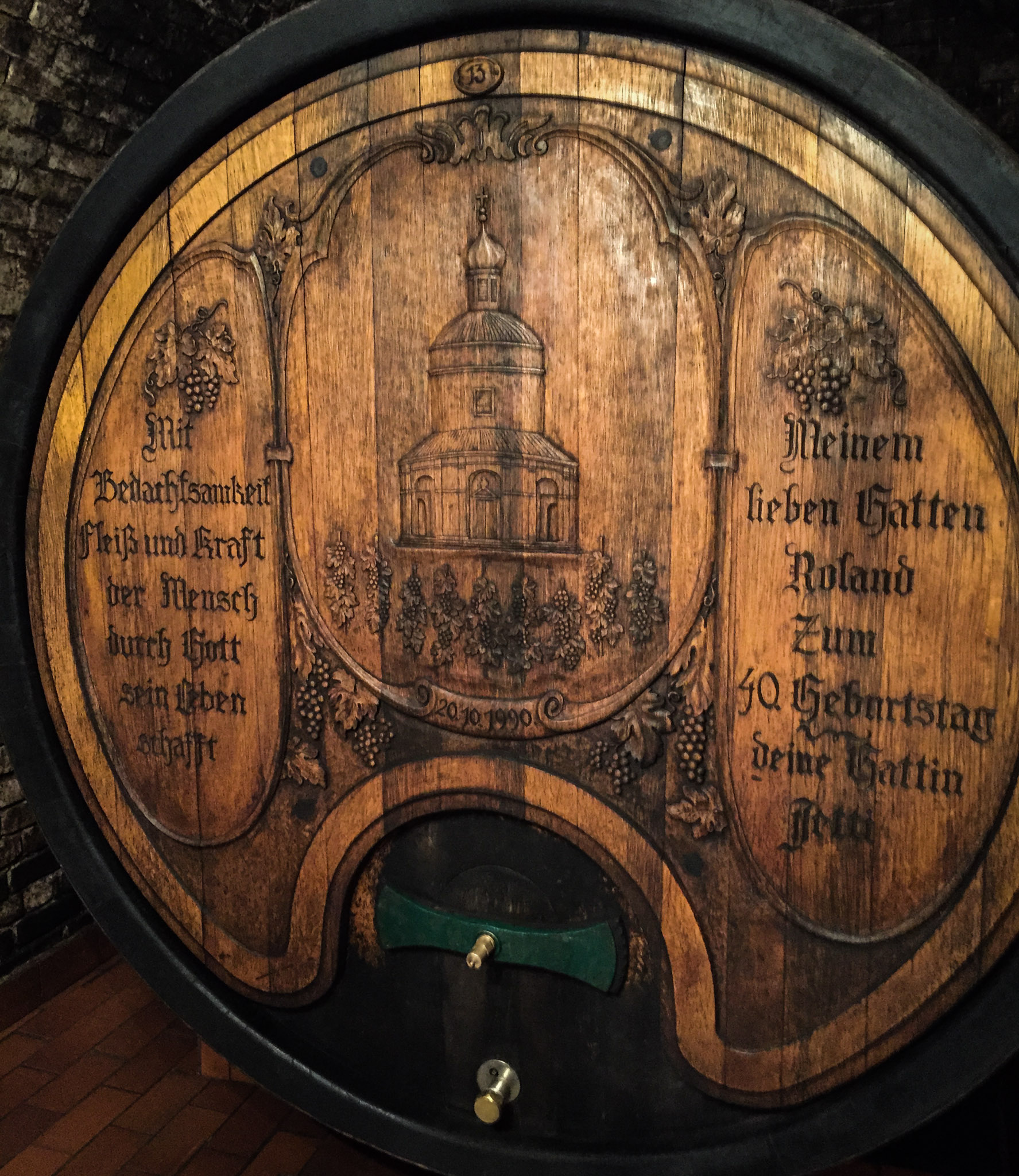
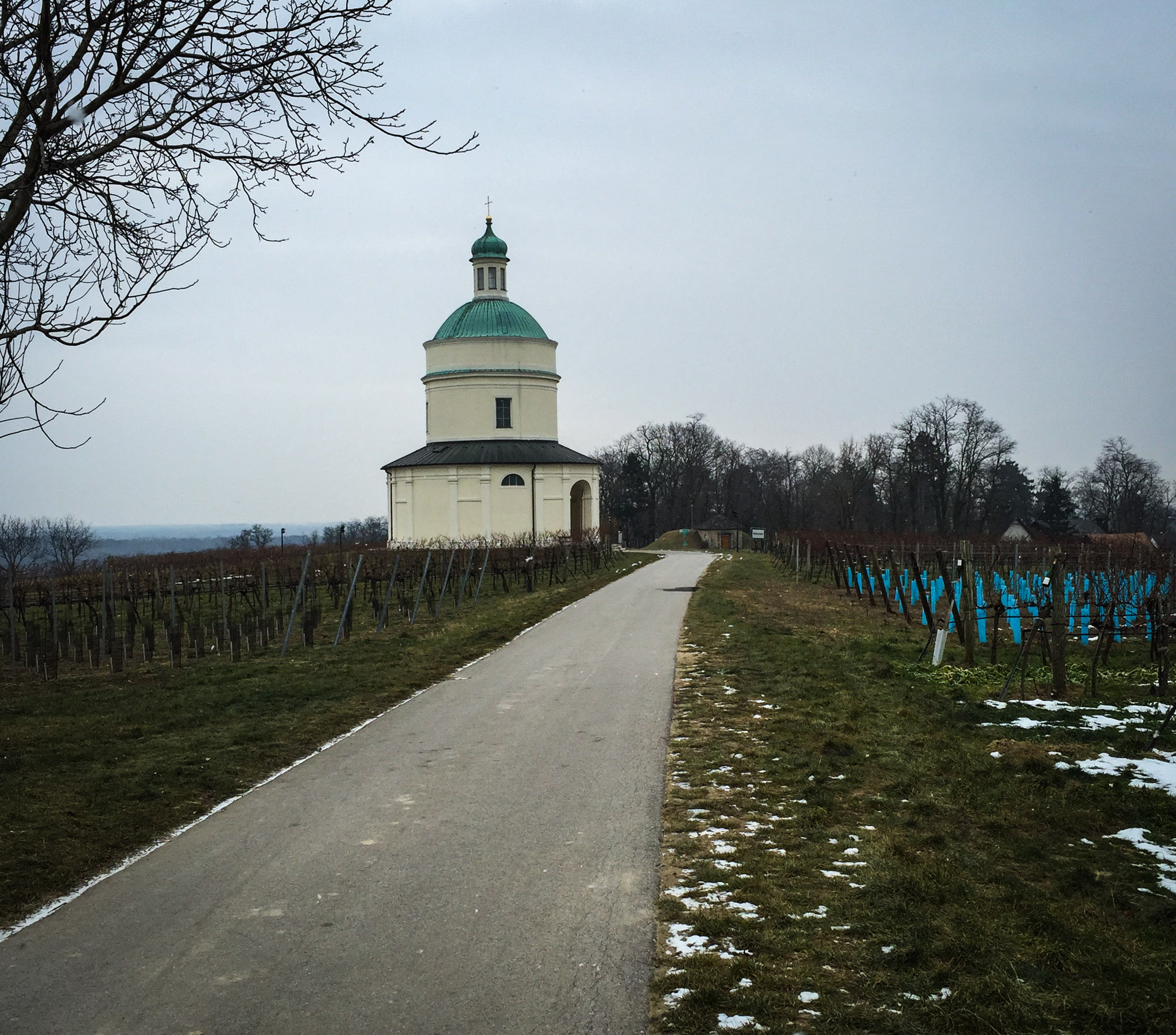
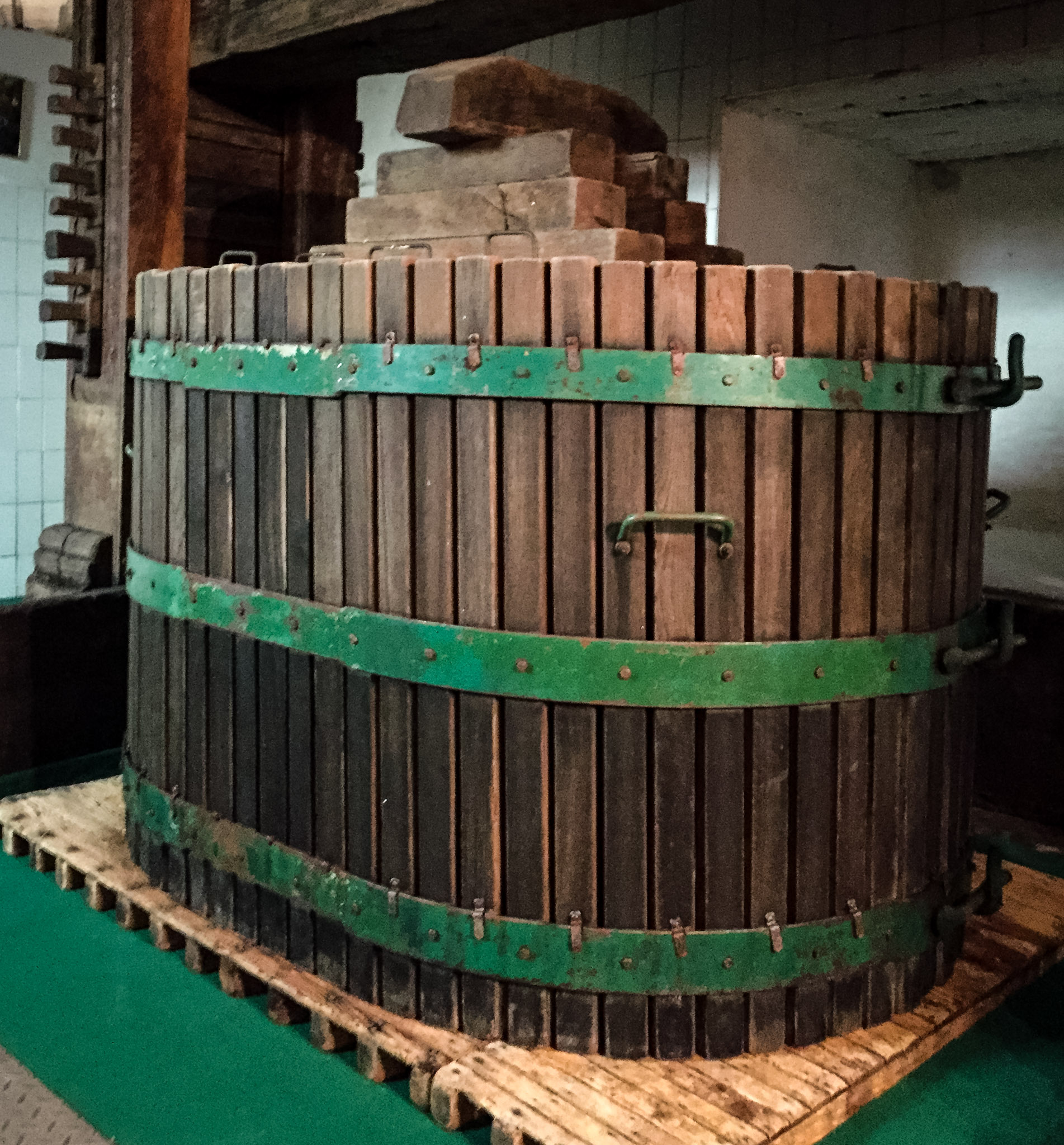

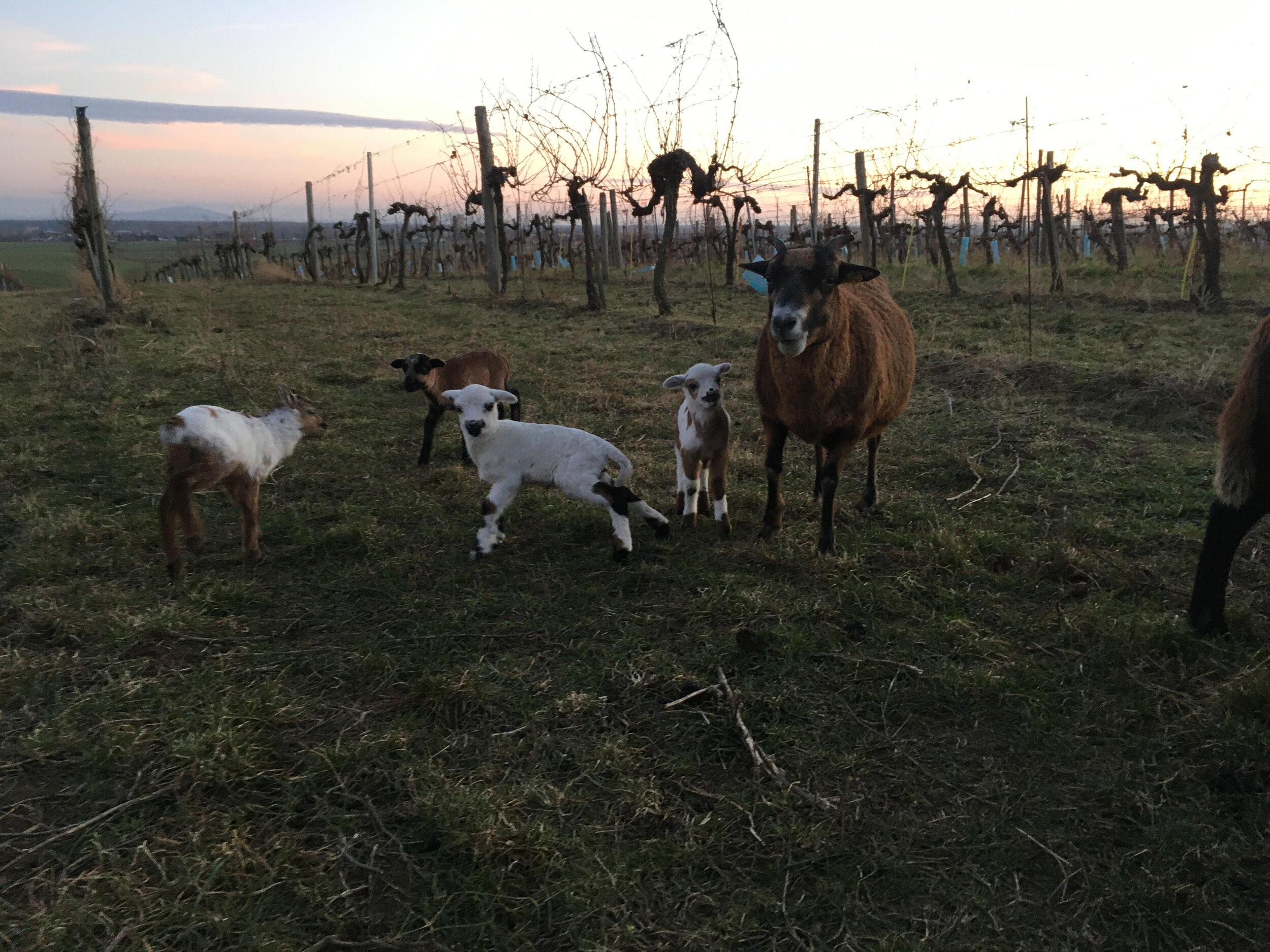
Minkowitsch
Who: Martin and Blandine Minkowitsch
Where: Mannersdorf (Weinviertel, Austria)
What grapes: Gruner Veltliner
Key facts: A 11-hectare, 14th generation family farm on the border of Slovakia dating back to 1620. Very traditional cellar work and healthy farming.
Website: https://roland-minkowitsch.at
Minkowitsch Gruner Veltliner Weinviertel DAC
Viticulture: Sustainable
Soil type: loam/loess
Elevation: 200m
Grapes: 40 year old Gruner Veltliner from Mannersdorfer Lehm-Lössboden, mostly from the Rieden Kurze Lissen and Lange Lissen.
Method of fermentation: Crushed in a large wooden press from 1820. Cool fermented in stainless steel, aged in large wooden fuders.
Passion fruit. Kiwi. Melon. Well it appears that I under-ordered this one. It was a clear favorite last month while we promoted the joys of Gruner with the Franco-Austrian couple in charge of this historic domaine. The DAC Gruner has mid-palate substance and layered fruit absent in the liters. Order bottles now-ish, if you need a handful. — JM
Minkowitsch Riesling “de Vite” Niederösterreich
Viticulture: Sustainable
Soil type: loam/loess
Elevation: 200m
Grapes: 50 year old Rheinriesling from Mannersdorfer Lehm-Lössboden from the Rieden: Kurze Lissen and Rochusberg.
Method of Fermentation: Crushed in an old-style wooden tree press. Aged in large old oak barrels.
A small herd of sheep graze between vines at this winery to provide natural, chemical-free weed control, and free fertilizer. Martin uses a massive 200-year-old wooden basket press to crush all the fruit grown on his 11-hectare farm bordering Slovakia. Nobody else in Austria works with such a traditional, gentle piece of equipment. The Riesling rests deep underground in a 400-year-old cellar before migrating to North Carolina. Such fidelity to ancient, by-hand farming and winemaking is worthy of our respect, and attention. — JM
Minkowitsch “Taste Austria” Gruner Veltliner 1.0 Liter NV
Viticulture: Sustainable
Soil type: loam/loess
Elevation: 200m
Grapes: Gruner Veltliners
Method of Fermentation: Crushed in a large wooden press from 1820. Cool fermentation in stainless steel. Made just for your pals at PWI by Martin & Blandine.
Vibrant. Ripe citrus. Martin made this at my behest. He’s such a positive, genial man, truly a great wine partner. Taking this bottle around the state with Martin and Blandine last year was a joy. It’s a perfect thirst-quencher, as honest and likeable as its makers. — JM
Minkowitsch Niederösterreich Gewurztraminer Premium
Viticulture: Sustainable
Soil type: loam/loess
Elevation: 200m
Grapes: Gewurztraminer
Method of fermentation: Crushed in a large wooden press from 1820. Cool fermented in stainless steel, aged in large wooden fuders.
I loved the spooky empty roads dotted with churches and villages hunkered down against the wind. It feels like the edge of something vast, inhuman in scale. I understand why the Austro-Hungarian monarchy fortified this eastern border with Croatian militiamen at the beginning of the 17thcentury. I also understand the pull of religion in this landscape. It feels like a place where something unremitting and powerful could be just over the horizon.
I mentioned Mannersdorf to a friend from Vienna recently. He said something to the effect that it is “the real Austria,” the place where things are as they have always been. We know culturally that this is the edge of something, but it feels like you entered snowglobe world – the sky is big, foreboding and grey and there are no hills mountains or trees. The edge of something – it is not the world of Western Europe.
In 1620, 14 generations ago, Martin Minkowitsch’s ancestors moved into the house that he shares with his French wife Blandine and their six children. I’m not sure how many generations occupied their time beating back the encroaching Ottomans. I do know that farming has been a priority across the generations. Martin is closely related to the late Lens Moser, who revolutionized Austria’s vine trellising system.
Sustainable, natural farming on the border of Slovakia. Family farm. 11.5 hectares. Since 1620. Martin took over in 2014. Nephew of Roland, son of Reinhold. Married to Blandine Minkowitsch. They have six children, who are the 15thgeneration of the family to live on the farm. The family emigrated to Austria from Croatia in 1620, were settled on the eastern border to defend the Austro-Hungarian empire from Ottomans. Many of the vines for this wine are 40+ years old.
